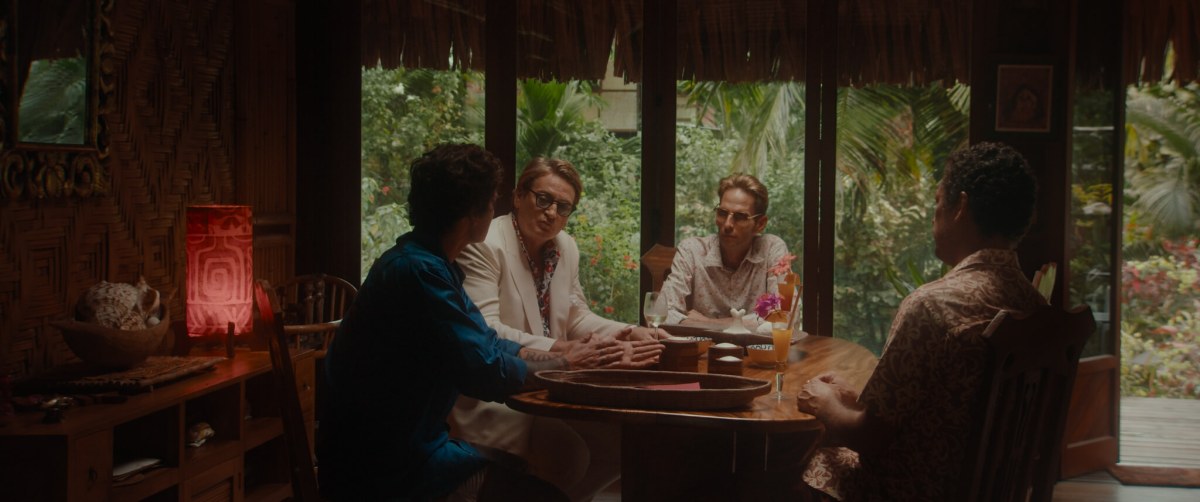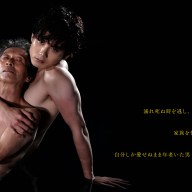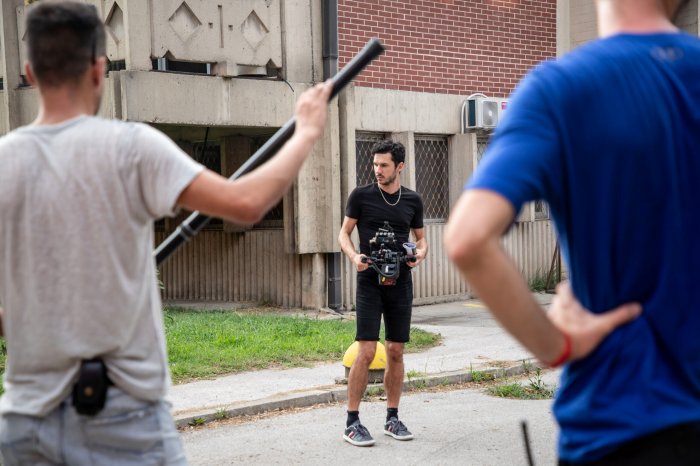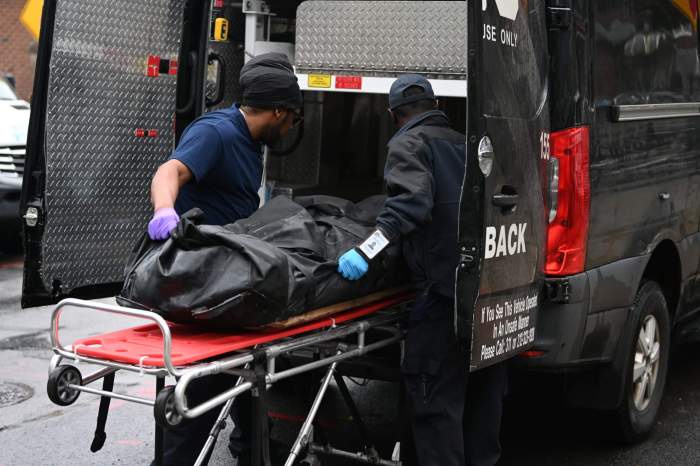Before we turn the page to 2024, let’s take a look at some of the most memorable queer film contributions of 2023.
The top 10:
“All of Us Strangers” (Andrew Haigh)
“All of Us Strangers” examines Gen. X life with a keen disregard for the boundaries between reality and fantasy, past and present. It’s a ghost story that links a middle-aged gay man’s grief to loneliness and internalized homophobia. Andrew Scott’s protagonist — his best role since the hot priest from “Fleabag” — is prepared to live inside his head his whole life until something cracks.
“Bottoms” (Emma Seligman)
Finally, a raunchy teen comedy that challenges the sexism and homophobia so common in the genre while being outrageously funny! Too many films in a similar vein struggle with terminal self-consciousness; thankfully, “Bottoms” delivers on its premise of laughter as a form of rebellion.
“Earth Mama” (Savanah Leaf)
The debut feature by Olympic volleyball athlete Leaf, “Earth Mama” is a compassionate, relatively restrained depiction of a poor Black woman, Gia (Tia Nomore), struggling with her pregnancy. Leaf portrays the social binds in which Gia is caught, where institutions supposedly meant to help turn out to be patronizing and controlling, with both detail and restraint. The quiet sound design and calm cinematography enhance the sense that poverty and racism are inescapable traps, but the film never reduces itself to clichés.
“The Killer” (David Fincher)
Superficially, “The Killer” resembles the middling thrillers that reach a huge audience on Netflix out of nowhere, years after release. In that context, it’s more of a prank on its audience (as well as a continuation of Fincher’s running theme of the serial killer), with an opening 20 minutes so grating they qualify as trolling. Rather than being an icon of cool, Michael Fassbender’s nameless hitman can’t shut up about how smart and awesome he is, while his actions prove otherwise.
In general, American movies and TV shows have done a terrible job of doing justice to the anger the recent rise in bigotry has made queer and trans people feel. “Kokomo City” is a big exception: D. Smith’s film gives Black trans sex workers a platform to speak more frankly than I’ve ever heard before in a movie.
Gay director Serra’s 165-minute trip to Polynesia is impossible to pin down. The subject of French colonialism may be a red herring. It’s an exercise in accumulating moment-to-moment experiences and stringing them together in a way that makes more visual than narrative (or even thematic) sense. Most importantly, it’s on this list because the entire final hour’s beauty had my jaw on the floor, wondering how the film could top itself. It kept doing so.
“The Plains” (David Easteal)
For a film consisting of three hours of footage of two men talking in a car, “The Plains” is amazingly artful. Directed by an Australian lawyer, he cast his former colleague Andy Rakowitz to play himself, writing a screenplay based on his life. It’s slow cinema, almost entirely shot with a stationary camera in the back seat of a car, but it’s also a carefully planned drama.
“Rewind and Play” (Alain Gomis)
Edited from outtakes of the 1970 French TV show “Jazz Portraits,” “Rewind and Play” is a devastating depiction of the media’s tendency to patronize Black artists, paying lip service to their greatness while speaking over them. A visibly uncomfortable Thelonious Monk squirms his way through an interview, before the show finally shuts up and lets him play the piano without interruption.
“Rotting in the Sun” (Sebastian Silva)
Has any director had a better time with his own (or his alter ego’s) obnoxiousness than Silva, who plays himself as a depressed ketamine addict in a Mexican resort?
“When Evil Lurks” (Demian Rugna)
Gloriously unelevated, “When Evil Lurks” combines lush imagery with sheer brutality, taking them to a level with few peers in recent horror. It takes most of the Christianity out of the possession movie and casts two extremely flawed brothers as the position of heroes, leaving one to wonder how much aggression against children is left behind and how those kids are going to respond. The problem lies much more with the flaws of humans, especially possessive men, than demons.
Runners-up: “Dry Ground Burning” (Adirley Queiros & Joana Pimenta), “Enys Men” (Mark Jenkin), “In Water” (Hong Sangsoo), “John Wick: Chapter 4” (Chad Stahelski), “Our Body” (Claire Simon), “Passages” (Ira Sachs), “Queens of the Qing Dynasty” (Ashley McKenzie), “Spoonful of Sugar” (Mercedes Bryce Morgan), “A Still Small Voice” (Luke Lorentzen), “Telemarketers,” (Adam Bhala-Lough and Sam Lipman-Stern), “Tori and Lokita” (Jean-Pierre and Luc Dardenne).
Someone please release these to theaters: “Anhell69” (Theo Montoya), “Coma” (Bertrand Bonello), “Diary of a Fleeting Affair” (Emmanuel Mouret), “Fairytale” (Alexander Sokurov), “Money Exchange” (Lautaro Garcia Candela), “Revolution+1” (Masao Adachi), “We No Longer Prefer Mountains” (Ilas Hadadi).
Shorts: “Air Force 2” (Kevin Jerome Everson), “Boyd v. Denton” (Kevin Jerome Everson), “The Daughter of Fire” (Pedro Costa), “If Only This Was Warmth” (King Krule music video; self-directed), “Slow Shift” (Shambhava Kaul), “The Swan” (Wes Anderson), “Trailer For a Film That Will Never Be Made: ‘Phony Wars’ “ (Jean-Luc Godard), “The Wonderful Story of Henry Sugar” (Wes Anderson).
Best Older films released in the US for the first time this year: “Black God, White Devil” (Glauber Rocha), “The Strangler” (Paul Vecchiali), “P. P. Rider” (Shinji Somai), “The World’s Greatest Sinner” (Timothy Carey).



































